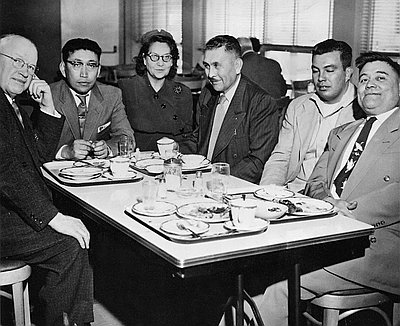This newspaper article describes some of the early debates over the termination of southern Oregon’s Klamath Tribes. The complex politicking reported in this piece went on until 1954, when the U.S. Congress passed the Klamath Termination Act.
Termination can be defined as the annulment of treaty agreements between the United States and affected tribes. Based on the dissolution of tribal governments and land holdings, termination represented the culmination of assimilationist policies that had long guided federal relations with Native peoples.
Although most Klamath were against termination, they were not united politically. The lobbying of a small but vocal contingent of pro-termination Klamath allowed white supporters of termination to argue that the Klamath as a whole supported the policy. However, contrary to popular belief, the Klamath people never voted in favor of termination.
The termination of the Klamath Tribes in 1954 resulted in the sale of the Klamath Reservation, the resources of which had made the tribes nearly self-sufficient for the first half of the twentieth century. The tribal government was also dissolved, and the health, education, housing, and other social services that the Klamath Tribes had enjoyed under the provisions of the treaty of 1864 were discontinued. In addition, state criminal and taxation laws were extended for the first time to the Klamath.
While the federal relationship with the Klamath and many other terminated tribes was restored in 1980s, the legacy of termination remains. For the Klamath, this means the almost complete loss of their land base, a severe decline in their game, fish, and water resources, and an erosion of their cultural identity.
Written by Cain Allen, © Oregon Historical Society, 2003.

